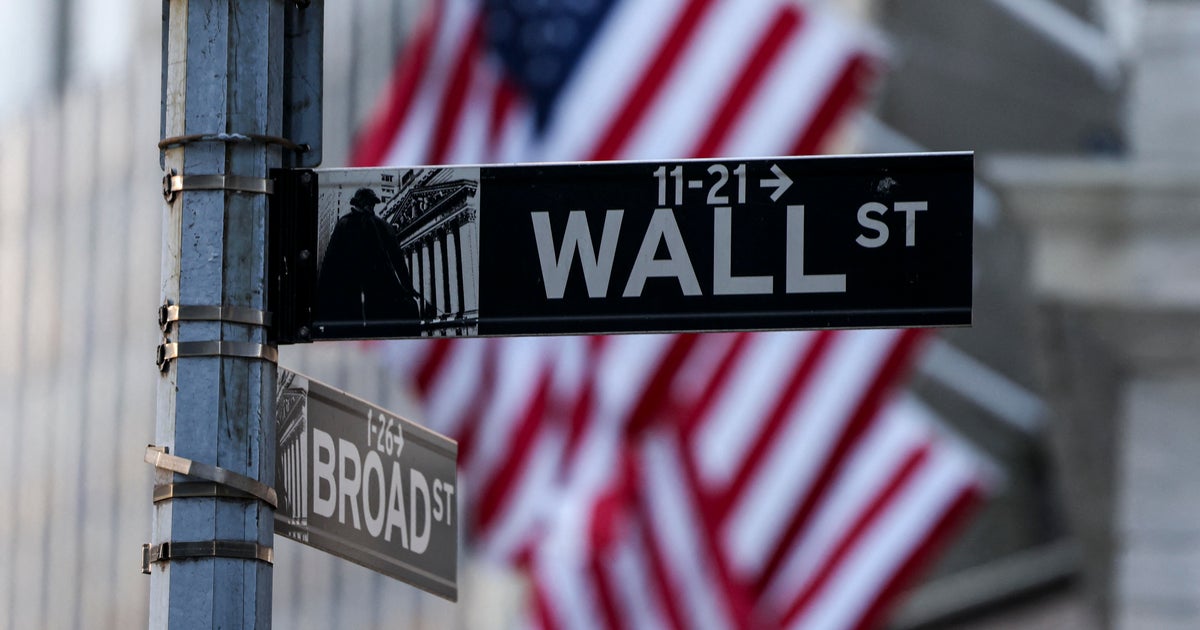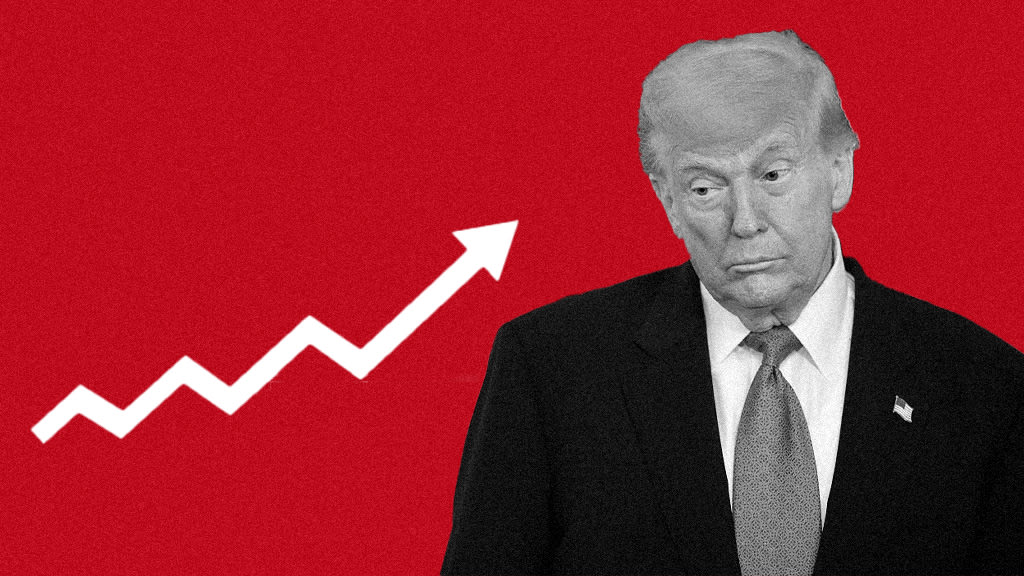Stocks slump as Credit Suisse selloff reignites bank worries
Stocks fell on Wednesday amid fresh worries about the banking sector, although Wall Street more than halved its losses by the closing bell.
The S&P 500 closed with a decline of 27 points, or 0.7%, at 3,892. The Dow posted a slightly steeper drop of 281, or 0.9%, at 31,875, while the Nasdaq rose slightly thanks to late gains in tech shares. Treasury yields plunged following several reports on the economy that were weaker than expected.
Switzerland's Credit Suisse sparked a broad selloff early Wednesday after its shares fell to a new low. Markets pared some of their losses as the Swiss National Bank said it could provide some assistance to Credit Suisse if needed.
Credit Suisse later announced in a statement that it would "exercise its option" to borrow up to 50 billion Swiss francs (about $53.6 billion) from the Swiss National Bank in an effort to "pre-emptively strengthen its liquidity."
The Switzerland-based Wall Street bank tanked following reports that its top shareholder will no longer pump more money into the struggling firm. Saudi National Bank representatives said they could not shore up their investments in Credit Suisse, citing regulatory concerns.
- These companies held money at the failed Silicon Valley Bank
- Silicon Valley Bank failure having worldwide repercussions
- Silicon Valley Bank is shut down by regulators. Here's what to know
The banking giant in February reported a fourth-quarter loss of $1.6 billion, after clients pulled $88.3 billion from the bank in the first two weeks of October, fearing instability after a year of scandal and restructuring, Bloomberg reported. Its loss for the year totaled $7.9 billion, its largest annual loss since the 2008 financial crisis, reported CNN.
Global problem
"Credit Suisse is not just a Swiss problem but a global one," Andrew Kenningham, chief Europe economist at Capital Economics said in a research note.
"The problems in Credit Suisse once more raise the question whether this is the beginning of a global crisis or just another 'idiosyncratic' case," he said, noting that "it is not the only bank which has struggled with weak profitability in recent years." Given that, plus the regional bank failures in the U.S.,"it would be foolish to assume there will be no other problems coming down the road," Kenningham said.
Indeed, the three recent bank failures in the U.S. have investors on edge, and the Credit Suisse news prompted renewed selling in bank stocks both in the U.S. and Europe.
"The collapse of Silicon Valley Bank in the USA represents the biggest threat to the financial system since the global financial crisis," Evghenia Sleptsova, senior EM economist at Oxford Economics said in a research note. "Although SVB was only the 16th largest U.S. bank, it is being viewed by the markets as potentially symptomatic of similar problems at other banks globally, many of whom hold large portfolios of long-dated securities, which could incur heavy losses if sold before maturity."
"Vortex of negativity"
Confidence in the banking system has eroded in just a matter of days following the failures of Silicon Valley Bank on Friday and Signature Bank on Sunday.
"The whole Credit Suisse incident Wed morning makes clear just how unique an industry banks are, with the entire business model dependent on the faith of financial markets," analyst Adam Crisafulli of Vital Knowledge said in a report. "If people THINK there's a problem, there WILL be a problem."
Impaired confidence in the banking system in the U.S. and Europe leaves more scrutinized lending institutions like Credit Suisse "especially vulnerable to tipping down into a vortex of negativity," Crisafulli warns, regardless of the stability of the firm in reality.
"For Credit Suisse specifically, all that happened this morning was the head of its largest shareholder ruled out further equity injections for REGULATORY reasons (not due to concerns about the soundness of the institution)," he noted.
For banks and regulators, said Crisafulli, finding ways to boosting investor confidence is key to breaking
"the feedback loop of gloom."
Selloff hits mostly regional banks
Most of the premarket decliners in the S&P 500 early Wednesday were regional banks, with Zion Bancorp, KeyCorp, Commerce and Regions all sliding between 5% and 8%. Bigger banks also lost ground, with Wells Fargo, Bank of America and Citigroup all fell between 3% and 4%.
Banks have struggled for the better part of the year as higher interest rates has fewer people and businesses taking out loans, part of the Federal Reserve's goal as it tries to cool the economy and bring down four-decade high inflation.
Investors returned to the bond market Wednesday, sending yields lower again after they recovered somewhat the previous day. The 2-year yield fell back down to 4.05% from 4.25% late Tuesday, and the yield on the 10-year slid to 3.53% from 3.69%.
Stocks had rallied Tuesday after the government said consumer prices decelerated from the previous month, mostly in line with analysts' expectations. The data showed core inflation, with volatile energy and food prices stripped out to show a clearer trend, was 0.5% in February over the previous month, edging up from January's 0.4% gain. The Fed pays close attention to core inflation in deciding on monetary policy.
Investors fear Fed overreaction
Investors fear the Fed might respond to enduring upward pressure on prices by speeding up the pace of interest rate increases to dampen economic activity and inflation.
The Fed faces a dilemma over how to respond when banks already are under strain after the fastest pace of rate hikes in a decade knocked down prices of their assets.
"The Fed is stuck between a rock and a hard place," said Brian Jacobsen, senior investment strategist at Allspring Global Investments.
"Inflation met expectations, but couple it with a stern warning that if inflation trends don't improve that they might need to hike more."
He said the Fed also has other tools to use besides rate increases. Among them: The Fed could adjust the speed at which it's shrinking its massive trove of bond investments, an action that effectively tightens the screws on the financial system.
President Biden and regulators have tried to assure the public that risks are contained and deposits in other banks are safe.
- Biden says Americans can "rest assured" banking system is secure after SVB collapse
- Fallout from Silicon Valley Bank collapse ripples across the industry
- First Republic Bank shares plummet as banking fears spread
Later Wednesday, the government reports on retail sales, giving the Fed more data to chew on before its meeting next week where the central bank will decide whether or not to raise its main borrowing rate for the ninth time in a row.
In energy markets, benchmark U.S. crude slid $1.039 to $70.24 per barrel in electronic trading on the New York Mercantile Exchange. The contract plunged $3.47 on Tuesday to $71.33.



